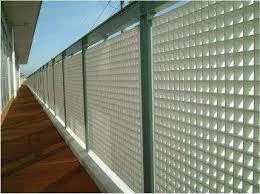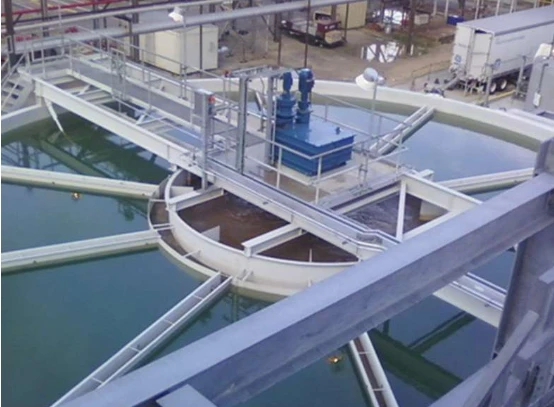
-
 Afrikaans
Afrikaans -
 Albanian
Albanian -
 Amharic
Amharic -
 Arabic
Arabic -
 Armenian
Armenian -
 Azerbaijani
Azerbaijani -
 Basque
Basque -
 Belarusian
Belarusian -
 Bengali
Bengali -
 Bosnian
Bosnian -
 Bulgarian
Bulgarian -
 Catalan
Catalan -
 Cebuano
Cebuano -
 China
China -
 China (Taiwan)
China (Taiwan) -
 Corsican
Corsican -
 Croatian
Croatian -
 Czech
Czech -
 Danish
Danish -
 Dutch
Dutch -
 English
English -
 Esperanto
Esperanto -
 Estonian
Estonian -
 Finnish
Finnish -
 French
French -
 Frisian
Frisian -
 Galician
Galician -
 Georgian
Georgian -
 German
German -
 Greek
Greek -
 Gujarati
Gujarati -
 Haitian Creole
Haitian Creole -
 hausa
hausa -
 hawaiian
hawaiian -
 Hebrew
Hebrew -
 Hindi
Hindi -
 Miao
Miao -
 Hungarian
Hungarian -
 Icelandic
Icelandic -
 igbo
igbo -
 Indonesian
Indonesian -
 irish
irish -
 Italian
Italian -
 Japanese
Japanese -
 Javanese
Javanese -
 Kannada
Kannada -
 kazakh
kazakh -
 Khmer
Khmer -
 Rwandese
Rwandese -
 Korean
Korean -
 Kurdish
Kurdish -
 Kyrgyz
Kyrgyz -
 Lao
Lao -
 Latin
Latin -
 Latvian
Latvian -
 Lithuanian
Lithuanian -
 Luxembourgish
Luxembourgish -
 Macedonian
Macedonian -
 Malgashi
Malgashi -
 Malay
Malay -
 Malayalam
Malayalam -
 Maltese
Maltese -
 Maori
Maori -
 Marathi
Marathi -
 Mongolian
Mongolian -
 Myanmar
Myanmar -
 Nepali
Nepali -
 Norwegian
Norwegian -
 Norwegian
Norwegian -
 Occitan
Occitan -
 Pashto
Pashto -
 Persian
Persian -
 Polish
Polish -
 Portuguese
Portuguese -
 Punjabi
Punjabi -
 Romanian
Romanian -
 Russian
Russian -
 Samoan
Samoan -
 Scottish Gaelic
Scottish Gaelic -
 Serbian
Serbian -
 Sesotho
Sesotho -
 Shona
Shona -
 Sindhi
Sindhi -
 Sinhala
Sinhala -
 Slovak
Slovak -
 Slovenian
Slovenian -
 Somali
Somali -
 Spanish
Spanish -
 Sundanese
Sundanese -
 Swahili
Swahili -
 Swedish
Swedish -
 Tagalog
Tagalog -
 Tajik
Tajik -
 Tamil
Tamil -
 Tatar
Tatar -
 Telugu
Telugu -
 Thai
Thai -
 Turkish
Turkish -
 Turkmen
Turkmen -
 Ukrainian
Ukrainian -
 Urdu
Urdu -
 Uighur
Uighur -
 Uzbek
Uzbek -
 Vietnamese
Vietnamese -
 Welsh
Welsh -
 Bantu
Bantu -
 Yiddish
Yiddish -
 Yoruba
Yoruba -
 Zulu
Zulu
Feb . 17, 2025 13:19
Back to list
Fans & Dampers & Demisters
Fiberglass weirs have become an increasingly popular choice for applications requiring precise flow measurement and water level control. These weirs are designed using fiberglass-reinforced plastics that provide a robust, durable, and cost-effective solution compared to traditional materials. With a seamless blend of practical benefits and exemplary performance, fiberglass weirs have proven to be essential assets across various industries.
From an environmental standpoint, fiberglass weirs are an eco-friendly option. Fiberglass can be manufactured using recycled glass, contributing to sustainability efforts and reducing the overall carbon footprint of production. These weirs also demonstrate low water absorption rates, preventing the introduction of excess moisture into ecosystems and maintaining the integrity of the data they collect. For businesses committed to sustainability, the incorporation of fiberglass weirs aligns with green practices and promotes environmental responsibility. The expertise behind the manufacturing of fiberglass weirs further illustrates their superiority. Produced by industry specialists with years of experience, these weirs undergo rigorous testing to ensure they meet the highest standards of quality and performance. Companies investing in fiberglass weirs can confidently rely on the authority of leading manufacturers who continually innovate to deliver products that exceed expectations in both performance and durability. Trustworthiness is a vital attribute of fiberglass weirs, derived from consistent results and the positive reputation they have established within the industry. Users from various sectors have reported notable enhancements in their operations due to the reliability of these weirs. Through feedback and case studies, fiberglass weirs have secured their position as a trusted solution for flow measurement and regulation. In conclusion, fiberglass weirs offer a compelling combination of durability, accuracy, and environmental responsibility, making them an unmatched choice for industries that require effective flow management solutions. Their resilience against corrosion, coupled with their precise performance and the expertise that backs their manufacturing, fortifies their status as a premier option for quality-conscious businesses. Adopting fiberglass weirs reflects a commitment to excellence and positions companies at the forefront of efficient and sustainable operations.


From an environmental standpoint, fiberglass weirs are an eco-friendly option. Fiberglass can be manufactured using recycled glass, contributing to sustainability efforts and reducing the overall carbon footprint of production. These weirs also demonstrate low water absorption rates, preventing the introduction of excess moisture into ecosystems and maintaining the integrity of the data they collect. For businesses committed to sustainability, the incorporation of fiberglass weirs aligns with green practices and promotes environmental responsibility. The expertise behind the manufacturing of fiberglass weirs further illustrates their superiority. Produced by industry specialists with years of experience, these weirs undergo rigorous testing to ensure they meet the highest standards of quality and performance. Companies investing in fiberglass weirs can confidently rely on the authority of leading manufacturers who continually innovate to deliver products that exceed expectations in both performance and durability. Trustworthiness is a vital attribute of fiberglass weirs, derived from consistent results and the positive reputation they have established within the industry. Users from various sectors have reported notable enhancements in their operations due to the reliability of these weirs. Through feedback and case studies, fiberglass weirs have secured their position as a trusted solution for flow measurement and regulation. In conclusion, fiberglass weirs offer a compelling combination of durability, accuracy, and environmental responsibility, making them an unmatched choice for industries that require effective flow management solutions. Their resilience against corrosion, coupled with their precise performance and the expertise that backs their manufacturing, fortifies their status as a premier option for quality-conscious businesses. Adopting fiberglass weirs reflects a commitment to excellence and positions companies at the forefront of efficient and sustainable operations.
Next:
Related Products









